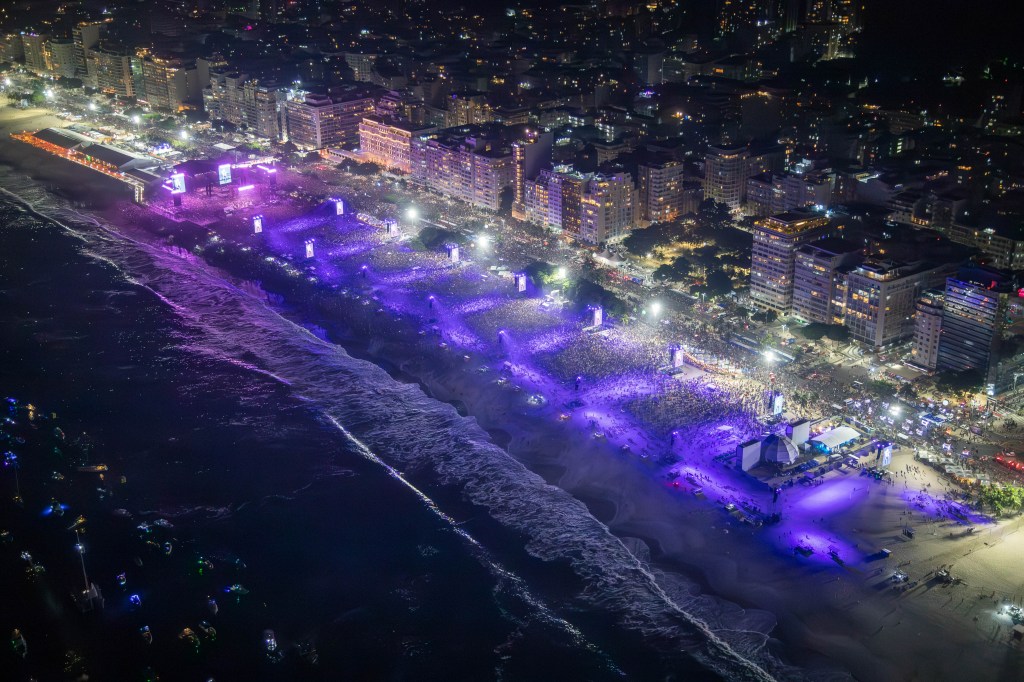Madonna makes history with free ‘beach party’ gig on Copacabana Beach, Brazil as 1.6 million attend

The star made history with the beach gig. (Getty)
Madonna has made history on Copacabana Beach, Brazil with her free “beach party” gig.
On Saturday (4 May), the world-renowned Christ the Redeemer statue on Corcovado mountain met Madonna, as the singer turned the two-and-a-half mile stretch of sand into a dancefloor to close off her Celebration Tour.
The “Hung up” hitmaker broke the record for the biggest standalone concert for any artist in history on the night, as 1.6 million people attended the final night of her critically acclaimed tour, according to Live Nation.
The record was previously set by the Rolling Stones in 2006 at a gig on the same beach which garnered 1.5 million fans, according to Rolling Stone Magazine.

In the lead-up to the concert, the city was bustling with hopeful fans trying to catch a glimpse of the biggest pop star in the world. The local airport expanded by an estimated 170 extra flights as fans flew in worldwide to catch the free gig.
“Here we are in the most beautiful place in the world,” Madonna told the gigantic crowd at the event. “This place is magic.”
Madonna performed “Music” for the first time at the tour on the night, and was joined by Brazillian drag queen and singer Pabllo Vittar. “Blame it on Rio Thank you Brazil!!!” she wrote on Instagram, marking her return to the country for the first time since 2012.
During her guest star segment of “Vogue”, the star welcomed openly bisexual Brazilian superstar, Anitta. The pair judged Madonna’s dancers during the ballroom section of the performance, which sees the performers strutting their stuff down the runway before receiving scores from Madonna and the interchangeable celebrity guest judge.
City officials ordered firefighters to keep fans cool by spraying water on them before the concert and offering free drinking water as temperatures hit 27 degrees Celsius during the evening performance, according to The Guardian. The precautions came as a young fan died at Taylor Swift’s Eras Tour last year in the city due to heat exhaustion.
How did this story make you feel?

